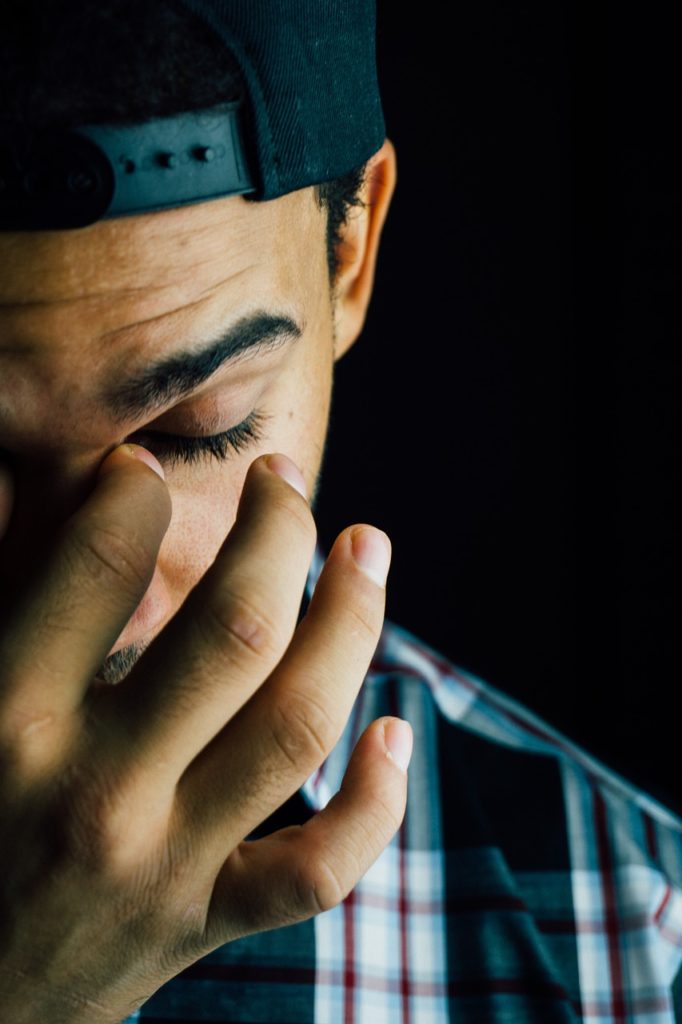- Calls to this hotline are currently being directed to Within Health, Fay or Eating Disorder Solutions
- Representatives are standing by 24/7 to help answer your questions
- All calls are confidential and HIPAA compliant
- There is no obligation or cost to call
- Eating Disorder Hope does not receive any commissions or fees dependent upon which provider you select
- Additional treatment providers are located on our directory or samhsa.gov
Panic Disorder as a Co-Occurring Issue with Eating Disorders

Eating disorders often co-occur with other mental illnesses, as there are many shared factors and commonalities between the two. One of the more common mental illnesses to develop alongside eating disorders are anxiety disorders.
Anxiety disorders can include a multitude of illnesses, all with varying degrees of symptoms experienced. Some anxiety disorders may be mild in nature, while other anxiety disorders are experienced more frequently or with more intense symptoms. Panic disorder is a type of anxiety disorder that may also be seen co-occurring with eating disorders.
Understanding Panic Disorder
While it is normal to feel stress or anxiety from time to time, panic disorder is a form of fear that often becomes debilitating. Panic disorder is a serious condition that often strikes without warning and can create symptoms that are often severe by nature.
Some of the common symptoms associated with panic disorder include the experience of nervousness, attacks of fear, racing heart, sweating, and the experience of panic attacks. The symptoms experienced with panic disorder are in response to a feeling of fear, though the reaction itself may be disproportionate to the actual situation.
Panic disorder that co-occurs with eating disorders, such as anorexia, bulimia, or binge eating disorder, can be overwhelming to manage.
The panic that may be experienced as part of panic disorder can become connected to food-related issues when developed alongside an eating disorder. For example, a person with panic disorder may experience an overwhelming fear response to situations that involve food, such as cooking, eating in front of other people, being confronted with “fear foods”, and/or grocery shopping. While these are simple day to day activities, for a person with a co-occurring eating disorder/panic disorder, the fear experienced can make it virtually impossible to carry out these tasks.
Finding Appropriate Treatment
 Because panic disorder can exacerbate the symptoms of an eating disorder, and vice-versa, it is crucial to receive professional treatment that addresses both of these conditions. If you have experienced panic disorder alongside an eating disorder, it is important that you seek out treatment that specializes in co-occurring eating disorder and mood disorder recovery.
Because panic disorder can exacerbate the symptoms of an eating disorder, and vice-versa, it is crucial to receive professional treatment that addresses both of these conditions. If you have experienced panic disorder alongside an eating disorder, it is important that you seek out treatment that specializes in co-occurring eating disorder and mood disorder recovery.
Many eating disorder treatment facilities do offer specialized care for co-occurring mood disorders, but be sure to inquire about this in your search for treatment. Know that with appropriate interventions, there is hope for healing and finding peace from mental illness that may have taken much from your life.
Community Discussion – Share your thoughts here!
What are some helpful coping mechanisms that have supported you through recovery from panic disorder?
 About the Author: Crystal is a Masters-level Registered Dietitian Nutritionist (RDN) with a specialty focus in eating disorders, maternal/child health and wellness, and intuitive eating. Combining clinical experience with a love of social media and writing, Crystal serves as the Director of Content and Social Media for Eating Disorder Hope/Addiction Hope, where her passion to help others find recovery and healing is integrated into each part of her work.
About the Author: Crystal is a Masters-level Registered Dietitian Nutritionist (RDN) with a specialty focus in eating disorders, maternal/child health and wellness, and intuitive eating. Combining clinical experience with a love of social media and writing, Crystal serves as the Director of Content and Social Media for Eating Disorder Hope/Addiction Hope, where her passion to help others find recovery and healing is integrated into each part of her work.
As a Certified Intuitive Eating Counselor, Crystal has dedicated her career to helping others establish a healthy relationship with food and body through her work with EDH/AH and nutrition private practice.
The opinions and views of our guest contributors are shared to provide a broad perspective of eating disorders. These are not necessarily the views of Eating Disorder Hope, but an effort to offer discussion of various issues by different concerned individuals.
We at Eating Disorder Hope understand that eating disorders result from a combination of environmental and genetic factors. If you or a loved one are suffering from an eating disorder, please know that there is hope for you, and seek immediate professional help.
Last Updated & Reviewed By: Jacquelyn Ekern, MS, LPC on December 20, 2016
Published on EatingDisorderHope.com

The EatingDisorderHope.com editorial team comprises experienced writers, editors, and medical reviewers specializing in eating disorders, treatment, and mental and behavioral health.

